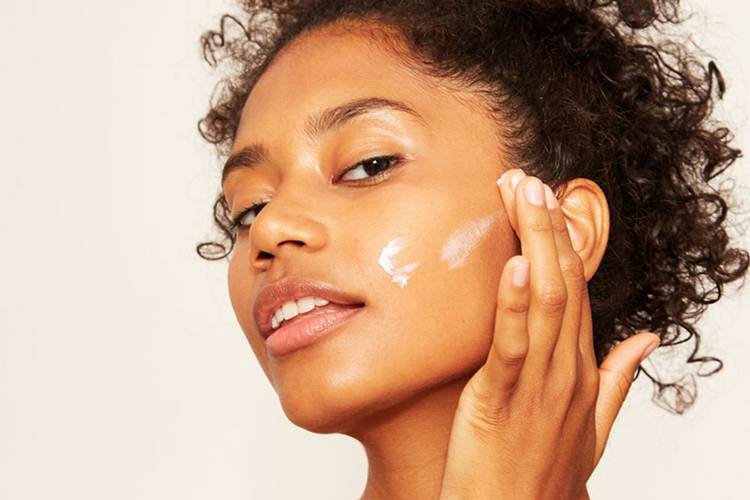CeraVe, a well-known skincare brand, provides a variety of products aimed at enhancing skin health. Two of its most popular items, CeraVe Healing Ointment and CeraVe Moisturizing Cream, are celebrated for their hydrating and protective properties. However, some people are concerned about whether these products can clog pores and potentially cause acne or other skin issues. In this article, we will explore the formulations, ingredients, and scientific evidence to determine whether CeraVe, CeraVe Healing Ointment, and CeraVe Moisturizing Cream can indeed clog pores.
- See also; Is Cerave Good for Tattoos?
- See also; Does Cerave Moisturizing Cream Lighten Skin?
Understanding CeraVe Products

Before we dive into the pore-clogging potential of CeraVe products, it’s essential to understand the brand’s principles and the ingredients used in their formulations.
CeraVe prides itself on incorporating hyaluronic acid, ceramides, and fatty acids into its skincare products. These components play a vital role in preserving the skin’s natural barrier function and providing long-lasting hydration. The brand also boasts the use of a patented Multivesicular Emulsion (MVE) technology, which gradually dispenses these essential ingredients over time, ensuring prolonged skin moisturization.
CeraVe Moisturizing Cream
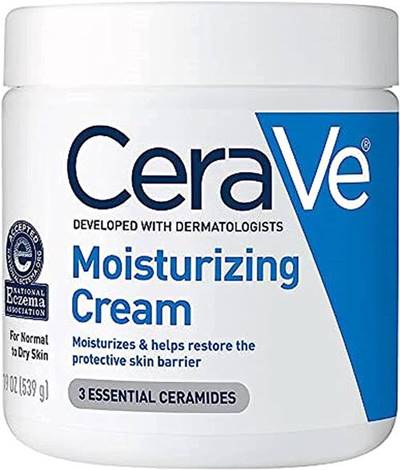
CeraVe Moisturizing Cream stands out as one of the brand’s flagship products, cherished for its ability to provide intense hydration for dry and sensitive skin. It’s fragrance-free and contains hyaluronic acid, ceramides, and other nourishing ingredients.
CeraVe Healing Ointment
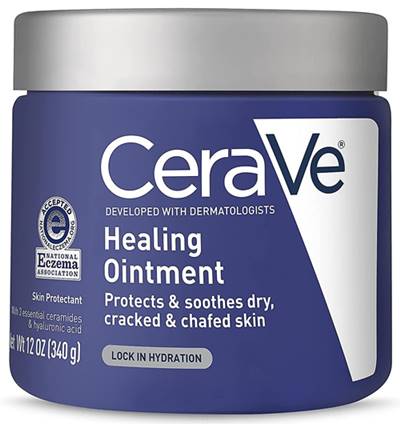
The CeraVe Healing Ointment is formulated to lock in moisture and protect the skin’s barrier. It’s an ointment with a thicker texture, ideal for deeply parched, cracked, or chapped skin. This product also contains hyaluronic acid, ceramides, and a blend of skin-protecting ingredients.
Does CeraVe Clog Pores?
The likelihood of skincare products causing pore blockages primarily hinges on the ingredients used, the individual’s skin type, and their unique sensitivities. Let’s examine the ingredients in CeraVe Healing Ointment and CeraVe Moisturizing Cream to determine if they are likely to clog pores.
1. Key Ingredients in CeraVe Moisturizing Cream
- Ceramides: Ceramides play a crucial role in maintaining a healthy skin barrier. They assist in sealing in moisture and protect the skin from environmental factors. They are typically regarded as non-comedogenic, meaning they do not clog pores.
- Hyaluronic Acid: Hyaluronic acid functions as a humectant, drawing in and retaining moisture within the skin. It is usually non-comedogenic and safe for the majority of skin types.
- Fatty Acids: The CeraVe Moisturizing Cream contains essential fatty acids that promote skin hydration without causing pore blockage.
2. Key Ingredients in CeraVe Healing Ointment
- Petrolatum: Although some individuals may have reservations about the occlusive properties of petrolatum, it is generally regarded as non-comedogenic. It prevents the loss of moisture without clogging pores.
- Ceramides and Hyaluronic Acid: Like the Moisturizing Cream, the Healing Ointment also contains ceramides and hyaluronic acid, both of which play a role in preserving skin health and moisture.
Understanding Non-Comedogenic Products
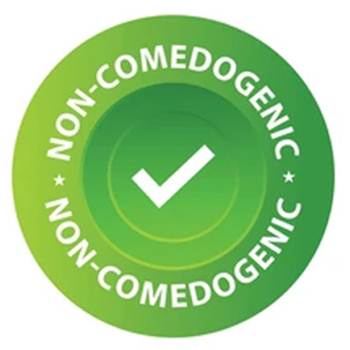
Non-comedogenic products are precisely formulated to minimize the risk of clogging pores and causing acne or other skin issues. These products undergo testing to verify that they do not contain ingredients that are known to be pore-clogging.
Both CeraVe Healing Ointment and CeraVe Moisturizing Cream are designed with the intention of being non-comedogenic. The inclusion of ceramides, hyaluronic acid, and fatty acids implies that these products aim to deliver moisture and nourishment without the risk of pore blockage.
However, it’s important to note that individuals with highly sensitive or acne-prone skin may still encounter breakouts or adverse reactions to any skincare product. Although these CeraVe products are generally well-tolerated by most people, individual skin reactions can vary, and there is no one-size-fits-all solution for skincare.
Real-World Evidence
While the ingredient list and formulation of CeraVe Healing Ointment and CeraVe Moisturizing Cream suggest that they are unlikely to clog pores, it’s also valuable to take into account real-world experiences and personal testimonials.
Numerous individuals with diverse skin types have reported positive results from using CeraVe products, including these two in question. They commend the brand for delivering essential hydration and skin protection without causing acne or pore-clogging issues.
Moreover, dermatologists frequently recommend CeraVe products to patients with sensitive or compromised skin. This professional endorsement further underscores the brand’s reputation for safe and effective skincare.
However, it’s crucial to bear in mind that skincare is a highly individualized experience. What works exceptionally well for one person may not be suitable for another. Factors like hormones, genetics, and specific skin conditions can all influence how a product interacts with one’s skin.
Tips for Using CeraVe Products
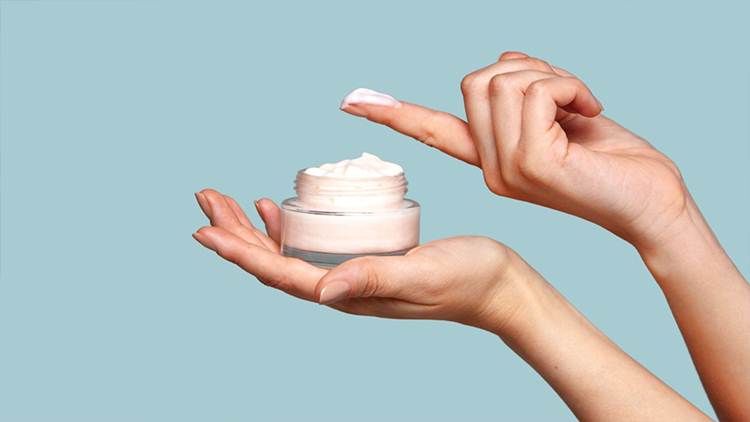
If you decide to incorporate CeraVe Healing Ointment or CeraVe Moisturizing Cream into your skincare routine, here are some tips to ensure the best possible outcome:
- Patch Test: Before applying any new skincare product to your face, it’s advisable to do a patch test on a small area of your skin. This practice will assist you in identifying any adverse reactions or sensitivities.
- Observe Your Skin: Pay attention to how your skin responds over time. If you notice any skin issues or unusual breakouts after using these products, it might be wise to discontinue use and consult a dermatologist.
- Customize Your Routine: Skincare is not one-size-fits-all. Customize your skincare routine to suit your specific needs, combining products that work for your skin type.
What are the common ingredients in CeraVe products that may clog pores?
CeraVe has a reputation for crafting products with ingredients that are less likely to clog pores. However, individuals with extremely sensitive or acne-prone skin may still react to certain components. Some common ingredients that might pose potential issues for some individuals include:
- Cetyl Alcohol: Although this ingredient is frequently used to stabilize and thicken products, it might cause issues for some.
- Cetearyl Alcohol: Another fatty alcohol used in many moisturizers.
- Isopropyl Myristate: An ingredient that can create a lighter feel in products but may not be suitable for everyone.
- Some silicones: While silicones are generally considered safe, certain individuals may discover that specific types clogging for their pores.
- Certain botanical oils: Oils like coconut oil may be troublesome for certain individuals with acne-prone skin.
It’s important to emphasize that these ingredients are typically well-tolerated by the majority of individuals, but everyone’s skin is different.
Q&A
Are CeraVe products non-comedogenic?
CeraVe offers a variety of skincare products, and many of them are designed to be non-comedogenic, meaning they should not clog pores or exacerbate acne.
Is CeraVe safe for acne-prone skin?
CeraVe is generally considered safe for acne-prone skin. Many of their products are formulated to be non-comedogenic and suitable for those with acne-prone or sensitive skin. However, individual responses can differ, so it’s essential to check specific product labels.
Do people experience clogged pores after using CeraVe?
While the majority of people find CeraVe products non-comedogenic, a few individuals may experience clogged pores or breakouts. Skin reactions can vary, so it’s advisable to conduct patch tests.
Conclusion
CeraVe, CeraVe Moisturizing Cream, and CeraVe Healing Ointment are generally acknowledged as non-comedogenic and safe for the majority of skin types. Their formulations, enriched with ceramides, hyaluronic acid, and other beneficial ingredients, are intended to provide hydration and protect the skin’s barrier without clogging pores. Real-world experiences and endorsements from professionals recommendations further support their safety and efficacy.
it’s essential to keep in mind that individual reactions to skincare products can differ. If you have concerns about these or any other skincare products, seek guidance from a dermatologist for personalized advice and recommendations tailored to your skin’s specific requirements. In the end, the foundation of healthy skin lies in comprehending your skin type and finding the products that work best for you.


